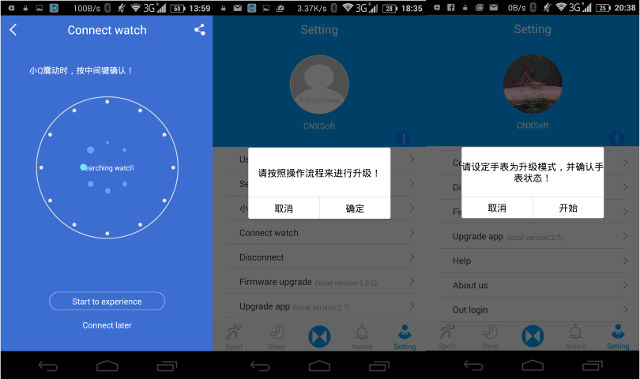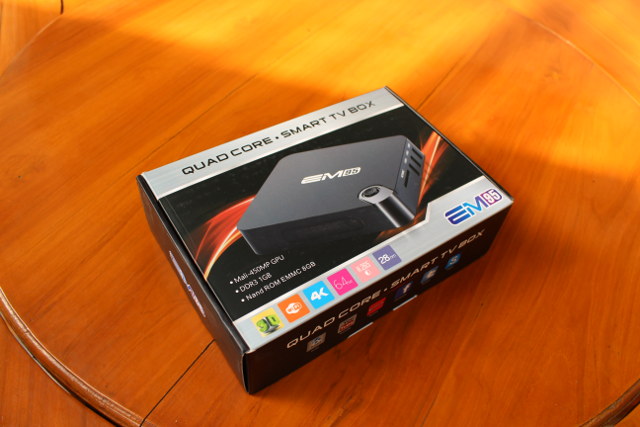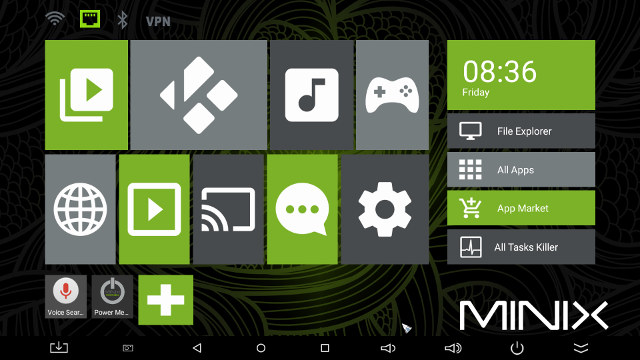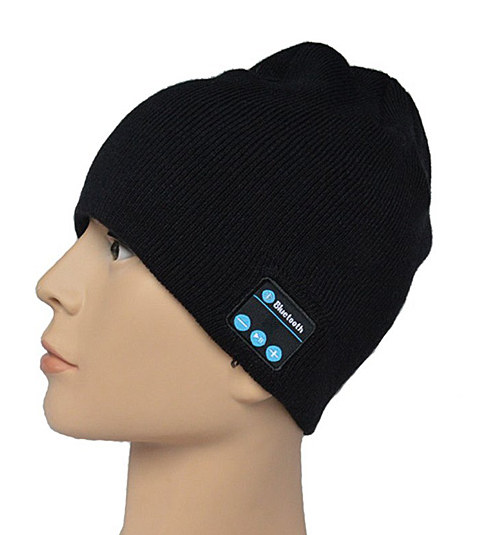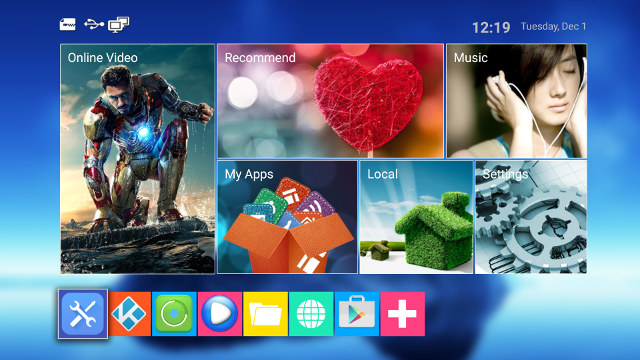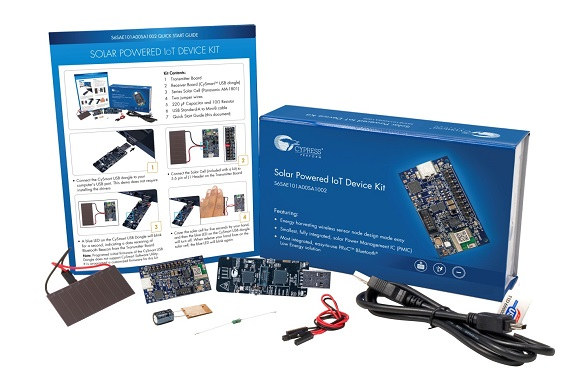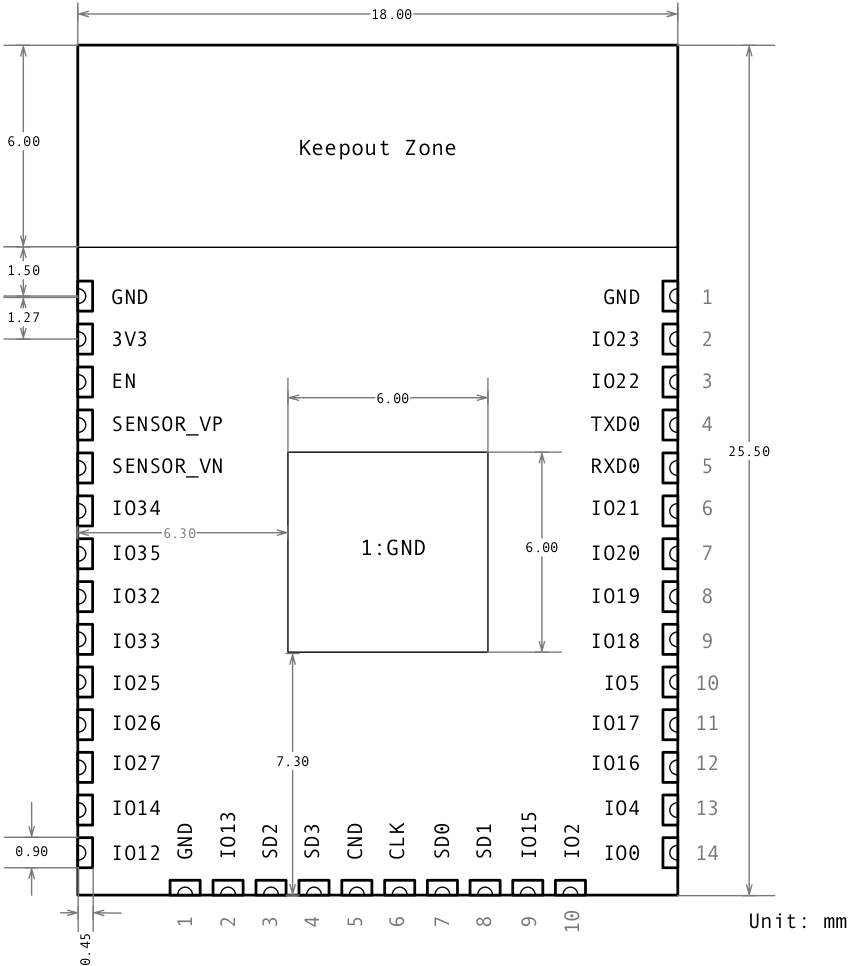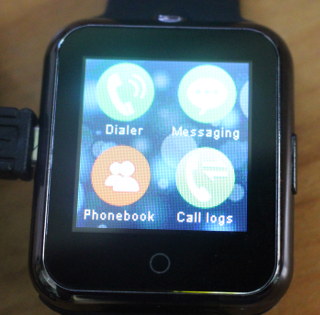I’ve started testing SMA-Q smartwatch, and so far I’ve had lots of issues with Bluetooth connectivity. The watch can rarely pair with my Android smartphone, and I was unable to enable features like Anti-lost and Sedendary alerts as the app would always report there was no connection. The company has sent me instructions to upgrade the firmware, and it seems to have improved things a little. So first you need to install SMA Services app by scanning the QR code on the user’s manual, or download the apk by following this link. Once this is done you can register, or skip registration. Now go to Setting, and select Connect watch. You should see a circle as on the left side above reading Searching watch, then Bluetooth Connecting, before seeing a message the connection was successful. You’ll probably them want to tap on Upgrade app, before tapping on Firmware upgrade (local […]
Unboxing and Teardown of Eny EM95 4K Android TV Box with Front Panel LCD Display
Eny EM95 was first unveiled in early July, as the flow of Android TV boxes based on Amlogic S905 started. Eny Technology has now sent me a sample of this device with the typical 1GB RAM and 8GB Flash, but it adds an LCD display on the front panel. Today, I’ll take a few photos of the device, and open it to find more details about the hardware. Eny EM95 TV Box Unboxing I received the device by DHL in a colorful retail package referring to EM95 as a Quad core Smart TV box, with some specs on the back, which I already listed in my first post. The media player ships with a 5V/2A power supply, an IR remote control with IR learning function requiring two AAA batteries, an HDMI cable, and a user’s manual in English. The style of the box it’s pretty neat, and I usually like […]
Review of MINIX NEO U1 Media Hub
We’ve already seen that MINIX NEO U1 has some impressive hardware to offer with a good thermal solution, and high-end chips for storage and WiFi, as well as some neats additions like RTC support. But obviously the most important is to find out how the box performs, so I’ve put it through it spaces with video playback and features testing, as well as some benchmarks. First Boot, OTA Firmware, Settings and First Impressions The device has three full-sized USB 2.0 ports, which become four once we had the provided USB OTG adapter to the remaining micro USB port. So I’ve connected a USB 3.0 hard drive, the RF dongle for NEO A2 Lite air mouse, a USB hub with a USB webcam, a USB keyboard, and the RF dongle for Tronsmart Mars G01 gamepad, as well as USB powered speakers to the micro USB port. After inserting HDMI, optical audio […]
$10 Bluetooth Knit Cap Provides an Alternative to Bluetooth Headsets in Winter
I’ve just come across a knit cap selling for $14.99 on DealExtreme, which looks like any knit cap except it can be charged and support Bluetooth, so it can be used as a BT headset. Some of the main features of the cap: Connectivity – Bluetooth 3.0 + EDR with up to 10 meter range Audio – Built-in microphone and headphones USB – micro USB port for charging Misc – 3 buttons: Volume +/-, play/pause (also used as On/Off) Battery – 300 mAh Li-Ion battery ; 4 hours charging time; 15 hours working time Dimensions – 21 cm x 21.5 cm x 2.5 cm (Knitted material) Weight – 71 g It can be used for hands-free calling or listening music with any phone that support Bluetooth, and charing is done via it’s micro USB port. One DHGate shop has uploaded a video showing how it works (might be a slightly […]
Review of Beelink MINI MX TV Box with MX Player
Beelink MINI MX Amlogic S905 Android media player has similar features, and costs about the same as K1 Plus TV box I reviewed last week, so it would be interesting to compare both. While specifications are similar there are some differences. For example, MINI MX lacks AV output, and only features two USB ports against four for K1 Plus, but it supports Gigabit Ethernet which could be an advantage while playing high bitrate 4K videos, as well a Bluetooth 4.0. I’ve already provided pictures and torn down MINI MX, so today is time for the full review and a comparison with K1 plus. First Boot, Settings and First Impressions I connected my USB 3.0 hard drive to one of the USB port, and a USB hub to tghe other port with a USB webcam, a USB keyboard, and two RF dongles for a gamepad and an air mouse. I also […]
Cypress Unveils a $49 Solar Powered IoT Development Kit with Bluetooth LE Connectivity
Cypress Semiconductors has recently launched a Solar powered IoT device kit, with the easy-to-remember codename S6SAE101A00SA1002, featuring the company’s CYBLE-022001-00 Bluetooth Smart module, and S6AE101A energy harvesting power management IC (PMIC) on the main board, as well as all accessories such as a small solar panel, a BLE-USB bridge, and all necessary components and cables. Target applications include battery-less wireless sensor node (WSN), IoT device that monitors various sensors, BLE Beacon, wearable device, building energy management system (BEMS), Home EMS, Factory EMSystem, wireless lighting control,wireless HVAC sensor and security system. The main features of the Energy harvesting motherboard include: Cypress CYBLE-022001-00 Bluetooth Smart module with ARM Cortex-M0 @ 48MHz, 128 KB flash, 16KB SRAM Cypress S6AE101A energy harvesting PMIC Sensor – Temperature & humidity sensor USB – 1x USB port for programming and debugging Debugging – SWD (serial Wire Debug) connector, JTAG header for USB-BLE Expansion – Sensor expansion connector […]
ESP32 Module Schematics and Board Files
Espressif teased about their ESP32 WiSoC with WiFi and Bluetooth LE a few weeks ago in a letter addressed to developers, but did not release that much information. The company has now released some documents in the forums (registration required) concerning ESP32 module including PCB processing requirement, schematics and PCB layout, and bill of materials. The very first modules will actually be based on ESP31 processor, which only slightly differs from ESP32 with some swapped pins. The BoM is pretty small with several capacitors and resistors, one inductance, a 26 MHz crystal, ESP31, and a Gigadevice flash. The schematics have been designed with Orcad 16.6, so if you don’t have the program, you can read the schematics with Orcad 16.6 Lite, which is free to download. I’ve also printed the schematics to a PDF file. I’m not sure how to open the .pcb file which should be the module’s PCB […]
No.1 D3 Smartwatch (Mediatek MT6261) Review
Since I’ve listed the specs and torn down No.1 D3 smartwatch, I’ve spent several days wearing the smartwatch / watchphone, and trying most of its features, so it’s time for a review. I’ll go through all screens of the user interface, include a video review, before providing a conclusion to this review Charging the watch take between 15 to 30 minutes, and you can turn it on by pressing the only button on the side of the watch for a few seconds. The first menu you are likely to see if the one with the phone functions including the Dialer, messaging, phonebook and call logs. You can use these in two ways: with a micro SIM card inserted into the watch, or/and via your smartphone connected over Bluetooth. I mostly used the watch connected to my smartphone, but both methods worked for me. When you receive a call, it’s not […]


